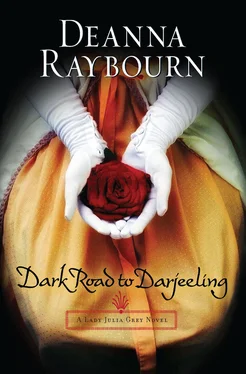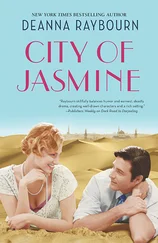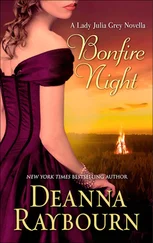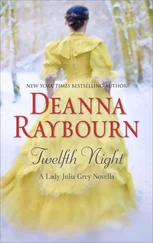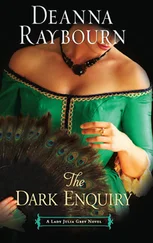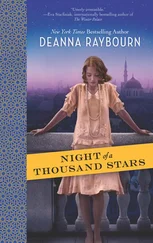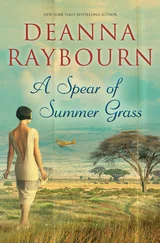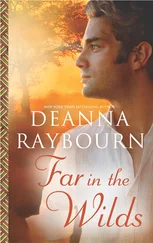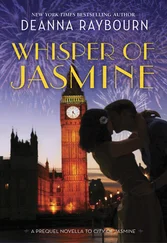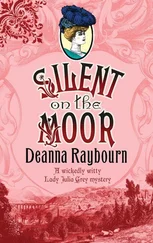She tossed a handful of juicy cherries at the peacock. It approached languidly, as if it merely deigned to eat. “There is a gentleman who lives up at the monastery on the ridge. He is something of a recluse, but he was kind enough to send Feuilly. He thought the bird would be a diversion in my mourning.”
My interest quickened. “I believe Miss Cavendish mentioned him, although she gave no name.”
“He is called the White Rajah out of deference for his lifestyle.”
“The White Rajah! How extraordinary.”
Jane shrugged. “It was common in the early years of the English presence in India for bachelor gentlemen to sometimes go native. It seldom happens now, of course—not since they all started importing wives from England and establishing their little outposts of Britannia across the country. But there was a time when it was quite a widespread practise to adopt Indian ways. This fellow wears a turban and jewels and speaks perfect Hindustani and Bengali and plays the sitar. He is quite a character.”
She tossed another handful of jewel-bright fruit to the peacock. “He must have been in India forever, although he is something of a newcomer to this valley. He simply rode in one day and took up residence in the monastery, treating the whole thing like a great, wrecked palace. He never stirs a foot from the place, but the gentlemen in the valley go up, naturally, and I understand he is a most genial host. I called upon him myself out of the grossest sort of curiosity.”
“Curiosity?” I eyed the peacock as it crept ever nearer my shoes.
Jane shrugged. “Oh, you know how stories get started. He is a rather mysterious person, clearly a gentleman and possessing some wealth but no one knows much about him. Everyone wants to discover the truth, so they put about stories of a great tragic love affair or a cursed inheritance. It’s nonsense, of course. He is most likely a younger son of a good family sent out to make his fortune in India and fallen into the habits of secrecy and eccentricity.”
“You have enough experience with that particular failing to know it at a distance, I should think,” I said ruefully. Feuilly began to peck at the toe of my shoe.
Jane dropped a few more cherries in his path and he abandoned me for sweeter prospects.
“I think eccentricity is a virtue much undervalued,” Jane said. “Our world would be a drab and uninteresting place if everyone in it were the same.”
I knew she was thinking of Portia then, and I wondered if she had regrets in breaking off their domestic arrangement to pursue marriage and convention. But then her hand dropped absently to her belly, and I knew that whatever regrets she bore, they could never outweigh the child she carried.
“Have you considered names?”
She shook her head. “I do not care, so long as it is healthy and strong.”
“And a boy?” I hazarded.
Jane wrapped her shawl more tightly about her shoulders. “I wonder. A boy would inherit the place, you know. My understanding is the estate is entailed in the male line. I could give him a future, something to build upon. But a girl, a girl would be my own. And I could leave,” she finished, her voice breaking.
I put my hand out, but she stepped aside, offering me a brave and artificial smile. “I am tired now. I ought to go and rest.”
She left me then and I puzzled over her capricious moods. Portia had been right to worry over Jane’s state of mind. Her moods could be the result of her condition. Heaven knew I had seen enough rampant hysteria in my sisters to last a lifetime. And the ordeal of breaking with Portia and moving to India only to lose Freddie must have been unspeakably hard for her. Adding to that the physical difficulties of expecting a child and the atmosphere in the house, she must have been pushed beyond endurance.
But what atmosphere, I wondered suddenly. Portia had spoken of Jane being afraid, almost as if she feared someone in the household. Yet nothing we had seen would account for such a fear. Miss Cavendish had been occasionally brusque, but one could meet a thousand such Englishwomen any day of the week. Her type was always to be found organising church bazaars and village fêtes, hardworking and unimaginative, but upright and harmless. And as for Harry Cavendish, he had been thoroughly charming.
Unless that charm was a façade for something more sinister, I reflected. He had known from birth he was not the heir. Destined to be passed over for the feckless Freddie, mightn’t he have harboured a grudge against fate for bestowing his beloved tea garden upon one less deserving?
And what was the history of the mysterious White Rajah? He had shown kindliness to Jane, but what did he know of the valley and its inhabitants? Elderly bachelors could be as accomplished gossips as their female counterparts, and it occurred to me that there might be very little that went on in the Valley of Eden that he did not know. Between his gentlemen’s dinners and tea parties with the ladies, he would have ample opportunity to collect information, were he so inclined. Information he might be persuaded to share, I reflected. I glanced at Feuilly and suddenly realised I had a perfect excuse to win myself an introduction to the gentleman.
I fixed the peacock with a firm stare and tossed the rest of the basin’s contents in front of him. He made a queer chortling sound in his throat and began to peck happily.
“Do not get too comfortable, mon paon,” I advised him. “Your days here are numbered.”
And when old words die out on the tongue,
new melodies break forth from the heart;
and where the old tracks are lost,
new country is revealed with its wonders.
—Closed Path
Rabindranath Tagore
I passed the rest of the morning jotting impressions into my notebook. I had tried valiantly to push all thoughts of Brisbane from my mind, but they were insidious, and I spent rather more time nibbling on the end of my pen than writing. It had occurred to me that if I were to solve the murder of Freddie Cavendish on my own, it might go a long way towards convincing Brisbane of my worthiness as a detecting partner, as well as my ability to have a care for my own safety. I imagined myself rejoining him in Calcutta, proclaiming to his astonished face the identity of Freddie’s murderer and collecting his abashed apologies. Even better, I imagined him joining me in the Valley of Eden, having changed his mind, only to find that I had already solved the case. I would be modest and self-effacing, I decided. It would make a better effect merely to smile blandly and tell him it had been quite nothing, really nothing at all, to unmask the villain myself.
But first I must establish a crime had been committed, I reflected, and I turned once more to my notebook, neatly setting down everything I had heard. One must have order in an investigation, I had heard Brisbane say often enough, and by the time the morning had finished, I had filled several pages with my thoughts and observations.
Luncheon was a quiet affair taken again in the morning room from a buffet of cold dishes laid by Jolly. The custom of the house was for whomever was about to wander in and help themselves after he had rung the gong. Jane took a tray in her room and Harry Cavendish lunched in his office at the tea shed, Miss Cavendish informed us. She was pleasant enough, but I regretted her presence. If it had been only Portia, Plum, and myself, we might have compared notes. As it was, I merely toyed with my food as I listened to Plum converse charmingly with Miss Cavendish. Portia was preoccupied, doubtless thinking of Jane, and I was relieved that Plum bore the brunt of conversation. It was unlike him to exert himself to be civil if he was not in the mood, and I hoped his garrulousness meant he was no longer regretting his enforced chaperonage of his sisters.
Читать дальше
